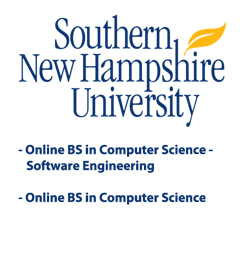
What is SQL and its current applications to database management?SQL is a database language, used to update databases, execute queries, and manage permissions. It was designed for relational database management systems. It’s generally considered a declarative language. It's been around in some form since the 70s and is just about as ubiquitous as data management itself.  The model was first introduced in a paper titled "A Relational Model of Data for Large Shared Data Banks" written by E. F. Codd. The language was at one point titled SEQUEL for Structured English Query Language; you may occasionally still hear SQL pronounced that way. SQL-related products have been in commercial use since 1979, when they were introduced by a forerunner to Oracle. Does Oracle control SQL? No. IBM soon followed suit. Today SQL is used in many open source and commercial products. Often these include SQL in the name. PostgreSQL is among the best known. SQL is used in health care (cancer registries) business (inventories, trends analysis), and education. It even has applications in the defense industry.
There are two standards committees "guarding" SQL: the International Standards Organization and the American National Standards Institute. Still, SQL is not all the same. In order to access and use the data, you need a database program or server. The major vendors have their own servers for database applications. Oracle Database applications use the Oracle Database SQL. IBM’s server is DB2. There’s also the Microsoft SQL Server. Then there’s MySQL , an open source database program that is sometimes thought of as a light version of Microsoft SQL – a place to get started, but one your business may ultimately outgrow. While multiple database programs use the SQL standard, they may eliminate portions or add to it. PL/SQL, for example, is oracle’s extension. Alterations make for some compatibility issues – this is an area of continued focus. Uses of SQLSQL is used in health care (cancer registries) business (inventories, trends analysis), and education. It even has applications in the defense industry. Who works with SQL? Database developers and administrators and business analysts are among the better known users. But knowing at least a little SQL can be an asset for people in a lot of different roles, from the web developer to the PhD level scientist. The most basic task is the query -- you specify "from" to tell the program what table(s) to retrieve data from and give additional clauses like "where" and "having" to narrow down what you want. A more advanced user will design and modify databases. SQL CertificationsThere are multiple SQL-related certifications that you can pursue. Certifications are usually vendor-specific -- you're getting certified in your expertise with particular solutions. Microsoft recommends Certified Solutions Expert: Data Platform for those who build enterprise scale applications. SQL MCSE: Business Intelligence is for those who develop business solutions and Microsoft Certified Master: SQL 2008 for senior IT professionals who use SQL Server 2008. IBM, meanwhile, offers the Certified Solutions Developer credential. Then there's Oracle. Oracle offers many SQL-related certifications for database administrators and developers. 10g and 11g administrators can be certified at the associate, professional, and master level. Some certifications require you to take particular courses. As a database professional, you can also be certified in MySQL. Be aware, though, that certifications change just about as frequently as technologies do. Learn SQLLooking to learn the language? You can get a foundation in SQL online. SQLCourse.com has a good tutorial for beginners. There's an introduction that starts out very basic, for example, explaining what a table is. You'll be doing exercises, though, by the third lesson. SQLCourse2.com, which is operated by the same parent organization, provides a more advanced tutorial – it jokingly refers to itself as the “sequel”. Database Journal, another related site, offers a forum plus articles on particular SQL solutions. W3Schools offers a basic tutorial, organized into sections, and a demo where you type in code to select data from the given table. Tizag offers yet another beginner’s tutorial; there’s also a conceptual SQL tutorial which introduces you to things like platforms. SQLZoo has separate sections for different SQL programs like MySQL and SQL Server. Pursuing a first degree? You can earn a bachelor's in database administration or technology. Master's degrees are also offered in database management and design. |

